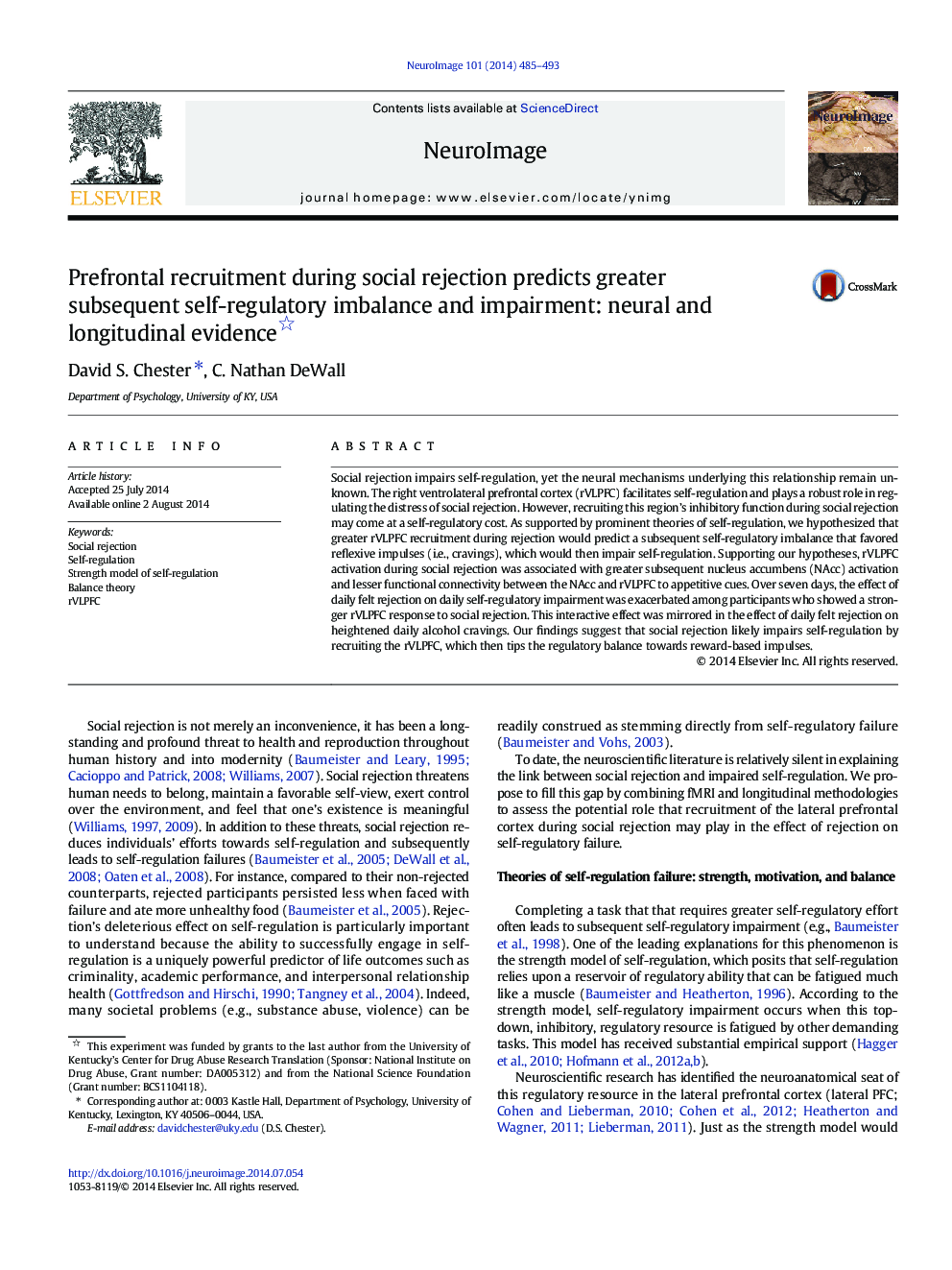| کد مقاله | کد نشریه | سال انتشار | مقاله انگلیسی | نسخه تمام متن |
|---|---|---|---|---|
| 6026358 | 1580905 | 2014 | 9 صفحه PDF | دانلود رایگان |
عنوان انگلیسی مقاله ISI
Prefrontal recruitment during social rejection predicts greater subsequent self-regulatory imbalance and impairment: neural and longitudinal evidence
ترجمه فارسی عنوان
استخدام پیش از قاعدگی در هنگام ردگیری اجتماعی، پیش بینی بیشتر اختلالات خود مختار و اختلال بیشتر را نشان می دهد: شواهد عصبی و طولی
دانلود مقاله + سفارش ترجمه
دانلود مقاله ISI انگلیسی
رایگان برای ایرانیان
موضوعات مرتبط
علوم زیستی و بیوفناوری
علم عصب شناسی
علوم اعصاب شناختی
چکیده انگلیسی
Social rejection impairs self-regulation, yet the neural mechanisms underlying this relationship remain unknown. The right ventrolateral prefrontal cortex (rVLPFC) facilitates self-regulation and plays a robust role in regulating the distress of social rejection. However, recruiting this region's inhibitory function during social rejection may come at a self-regulatory cost. As supported by prominent theories of self-regulation, we hypothesized that greater rVLPFC recruitment during rejection would predict a subsequent self-regulatory imbalance that favored reflexive impulses (i.e., cravings), which would then impair self-regulation. Supporting our hypotheses, rVLPFC activation during social rejection was associated with greater subsequent nucleus accumbens (NAcc) activation and lesser functional connectivity between the NAcc and rVLPFC to appetitive cues. Over seven days, the effect of daily felt rejection on daily self-regulatory impairment was exacerbated among participants who showed a stronger rVLPFC response to social rejection. This interactive effect was mirrored in the effect of daily felt rejection on heightened daily alcohol cravings. Our findings suggest that social rejection likely impairs self-regulation by recruiting the rVLPFC, which then tips the regulatory balance towards reward-based impulses.
ناشر
Database: Elsevier - ScienceDirect (ساینس دایرکت)
Journal: NeuroImage - Volume 101, 1 November 2014, Pages 485-493
Journal: NeuroImage - Volume 101, 1 November 2014, Pages 485-493
نویسندگان
David S. Chester, C. Nathan DeWall,
